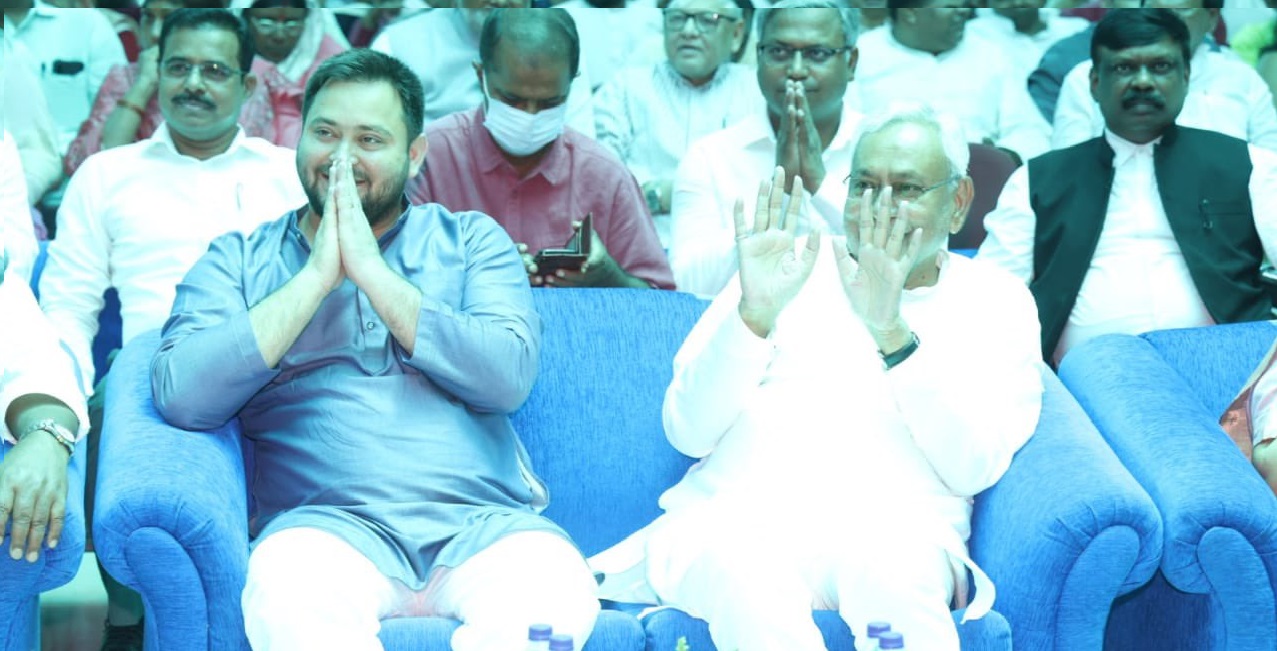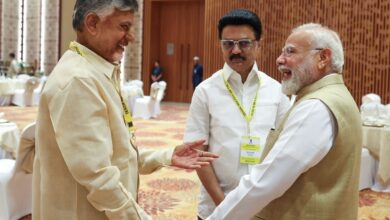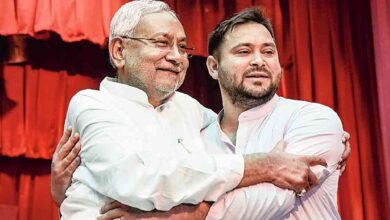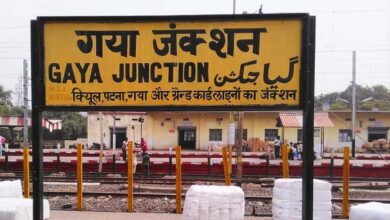Bihar Cabinet portfolio allocation: Nitish Kumar keeps home, Tejashwi Yadav gets health, roads

Chief Minister Nitish Kumar expanded his cabinet on 16th August with the induction of 31 ministers of different constituents of the Grand Alliance or Mahagathbandhan.
Out of the 31 newly inducted ministers 16 are from the Rashtriya Janata Dal (RJD) followed by 11 from Janata Dal (United) two from the Congress Party. One is from the Hindustani Awam Morcha (Secular) and one is an Independent MLA.
The total number of ministers in Bihar now stands at 33. This includes the chief minister and the deputy chief minister, who had taken oath earlier this month.
Chief Minister Nitish Kumar has retained the home portfolio with himself. Deputy Chief Minister Tejashwi Yadav holds Health, Road Construction, Urban Development, Housing and Rural Development.
The JD(U) has also took control of the finance ministry. By entrusting Vijay Kumar Choudhary with the key portfolio, Nitish Kumar has marked him out as the most important leader in the party after him at the moment. Bijendra Prasad Yadav, the Yadav face in Nitish’s camp, has to make do with the Energy portfolio that he already held.
Here is the complete list of ministers and their portfolios:
- Nitish Kumar – Home, General Administration, Cabinet Secretariat, Election
- Deputy Chief Minister Tejashwi Yadav – Health, Road Construction, Urban Development, Housing and Rural Development.
- Vijay Kumar Chaudhary – Finance, Commercial Tax and Parliamentary Affairs
- Tej Pratap Yadav – Environment, Forest and Climate Change
- Bijendra Yadav – Power, Planning and Development
- Alok Mehta – Revenue & Land Reforms
- Afaque Alam – Animal Husbandry & Fisheries
- Shravan Kumar – Rural Development
- Ashok Choudhary – Building Construction
- Leshi Singh – Food & Consumer Protection Department
- Sanjay Jha – Water Resources and Information & Public Relations
- Madan Sahni – Social Welfare
- Kumar Sarvajeet – Tourism
- Surendra Prasad Yadav – Co-operative
- Ramanand Yadav – Mines and Geology
- Santosh Kumar Suman – Welfare (SC & ST)
- Lalit Yadav – Public Health & Engineering
- Samir Kumar Mahaseth – Industries
- Chandrashekhar – Education
- Jitendra Kumar Rai – Art, Culture & Youth Affairs
- Anita Devi – Welfare (Backward & Economically Backward Classes)
- Sudhakar Singh – Agriculture
- Md Israil Mansuri – Information Technology
- Surendra Ram – Labour Resources
- Shahnawaz Alam – Disaster Management
- Shamim Ahmed – Sugarcane
- Murari Gautam – Panchayati Raj
- Sumit Kumar Singh – Science & Technology
- Sheela Kumari – Transport
- Mohd Zama Khan – Minority Welfare
- Kartikeya Singh – Law
- Sunil Kumar – Registration & Prohibition
- Jayant Raj – Minor Water Resources
RJD’s social combination
The RJD has included six ministers from the Yadav community. Apart from Tej Pratap Yadav and Madhepura MLA Chandra Shekhar, they are Belaganj MLA Surendra Prasad Yadav; Fatuha MLA Ramanand Yadav; Darbhanga Rural legislator Lalit Yadav; and Marhaura MLA Jitendra Rai. These six ministers cater to the regions of Samastipur, Gaya, Patna, Madhepura, Darbhanga, and Saran. The party has also given three berths to Muslim leaders. The three are Shahnawaz Alam, the son of former MP and Seemanchal’s Muslim face Mohammed Taslimuddin; Israil Mansuri, a Pasmanda Muslim from Muzaffarpur; and Shamim Ahmad from the Champaran belt. Anita Devi, who belongs to an Extremely Backward Class (EBC) community is the only woman in the ministerial council. She was also a minister in the previous “Mahagathbandan (Grand Alliance)” government.
With the appointments, the party has tried to maintain the social balance among non-Yadav OBCs, EBCs, and the Scheduled Caste (SC). It has included former MP Alok Mehta who is an OBC Kushwaha leader from Samastipur and Sameer Mahaseth (Madhubani) who belongs to the OBC Vaishya community, which is otherwise considered a BJP constituency. The two ministers from the SC community are Kumar Sarvjeet from Gaya and Surendra Ram from Saran.
In a renewed attempt at the politics of assimilation that it calls the “A to Z” strategy, the RJD has made MLC Kartik Singh a minister. Singh is an upper-caste Bhumihar. In the Bochachan Assembly bypoll in April, which the RJD wrested from the Vikassheel Insaan Party, the party received significant Bhumihar support.
JD(U)’s rainbow combination
The JD(U) did not spring any surprise as it retained its 11 ministers who represent the party’s rainbow social combination. Apart from Vijay Kumar Choudhary (Bhumihar) and Bijendra Prasad Yadav (OBC), its ministers are Jayant Raj (Kushwaha), Ashok Kumar Choudhary (SC), Shravan Kumar (OBC Kurmi), Leshi Singh (Rajput), Madan Sahni (EBC), Sanjay Kumar Jha (Brahmin), Sheela Kumari (EBC), and Sunil Kumar (SC). Its lone Muslim minister is Jama Khan, who was earlier with the Bahujan Samaj Party.
Though there was speculation that Nitish would drop Phulparas (Madhubani) MLA Sheela Kumari because of her proximity to former JD(U) leader RCP Singh, the CM retained her likely because he wished to avoid blowback from the EBC community, which is one of his core support bases.
The Congress went with an SC-Muslim combination this time unlike the last Mahagathbandan government when one of its ministers was Dalit and another from a Brahmin. The new Congress ministers are Mohammed Aafaque Alam from the Seemanchal belt of Purnia and Surendra Ram from Rohtas.
The Hindustani Awam Morcha (Secular) party kept its sole ministerial berth, with party chief and former CM Jitan Ram Manjhi’s son Santosh Kumar Singh remaining a minister. Independent MLA Sumit Kumar Singh from Chalai in Jamui district, who is the son of former state minister and socialist leader Narendra Singh, also retained his place in the ministerial council.




